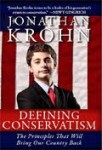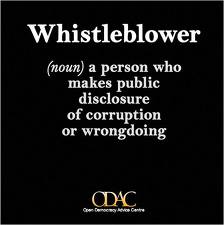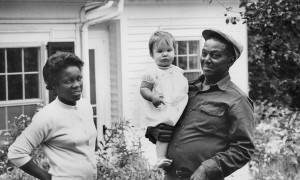Jonathan Krohn’s Political Evolution & a Couple Welcome Updates
Day Later Update: Jonathan Krohn went on Last Word w/Lawrence O’Donnell Monday night and did a great job explaining the evolution of his political views over the past few years. He’s a very mature 17-year old and I can’t help being a fan of his, and admiring his transformation. You can watch it via this link.
—
Late Afternoon Update: After I tweeted out my blog post about Jonathan Krohn I heard from him, and the Twitter exchange we shared is below. I must say I admire his candor and his broad-mindedness in continuing to quest for a political philosophy that suits him. For proper sequence, the tweets should be read from top to bottom.
Onetime young favorite of the conservative movement, Jonathan Krohn, now 17, has largely disowned the doctrinaire ideological positions he seemed to favor at age 13, when he gave a widely covered speech at the Conservative Political Action Conference. Politico‘s Patrick Gavin has the story on Krohn’s transformation into a gay marriage-favoring, healthcare-supporer who would probably vote to re-elect President Obama voter, if he were of age in November. From Gavin’s article, partly in Krohn’s own words,
“’I think it was naive,’ Krohn now says of the speech. ‘It’s a 13-year-old kid saying stuff that he had heard for a long time.… I live in Georgia. We’re inundated with conservative talk in Georgia.… The speech was something that a 13-year-old does. You haven’t formed all your opinions. You’re really defeating yourself if you think you have all of your ideas in your head when you were 12 or 13. It’s impossible. You haven’t done enough. . . . One of the first things that changed was that I stopped being a social conservative,’ said Krohn. ‘It just didn’t seem right to me anymore. From there, it branched into other issues, everything from health care to economic issues.… I think I’ve changed a lot, and it’s not because I’ve become a liberal from being a conservative—it’s just that I thought about it more. The issues are so complex, you can’t just go with some ideological mantra for each substantive issue. . . . I’ve been trying to tell people,’ he added, ‘but it’s a lot harder to get stuff out there when your mind changes on things because a lot of people who supported you when you’re on one side of the issue aren’t really going to help you get your changing ideas out there when people still think I’m that conservative kid. . . . People don’t realize I was 14 when I wrote that book.'”
 Soon after the speech and all the coverage Krohn garnered, publisher Roger Cooper of Vanguard Press signed him up for a book. Roger, for whom I’ve edited manuscripts, asked if I would be interested in working with Krohn and editing his book. I had seen the speech, which I watched it with my own son Ewan, who’s a year younger than Krohn. Ewan found his beliefs and his celebrity, weird and unappealing. Though committed to the idea that every author has a right to tell his story, I declined to make a bid for the editorial assignment, largely because I didn’t want to work on political material I found inimical to my own or Ewan’s views; nor did I anticipate I could have a vigorous exchange of ideas with the smug boy I’d seen on C-Span. He seemed so convinced of his ideological positions, I just didn’t relish the thought of working with someone like him. The weird thing for Krohn now is that he’s got this unenviable Youtube and Internet history that he can’t escape, and which he’s already tired of dealing with, and being forced to explain to people. He’ll soon be going to NYU where he plans to study philosophy and filmmaking. The last word in the story is from Krohn:
Soon after the speech and all the coverage Krohn garnered, publisher Roger Cooper of Vanguard Press signed him up for a book. Roger, for whom I’ve edited manuscripts, asked if I would be interested in working with Krohn and editing his book. I had seen the speech, which I watched it with my own son Ewan, who’s a year younger than Krohn. Ewan found his beliefs and his celebrity, weird and unappealing. Though committed to the idea that every author has a right to tell his story, I declined to make a bid for the editorial assignment, largely because I didn’t want to work on political material I found inimical to my own or Ewan’s views; nor did I anticipate I could have a vigorous exchange of ideas with the smug boy I’d seen on C-Span. He seemed so convinced of his ideological positions, I just didn’t relish the thought of working with someone like him. The weird thing for Krohn now is that he’s got this unenviable Youtube and Internet history that he can’t escape, and which he’s already tired of dealing with, and being forced to explain to people. He’ll soon be going to NYU where he plans to study philosophy and filmmaking. The last word in the story is from Krohn:






